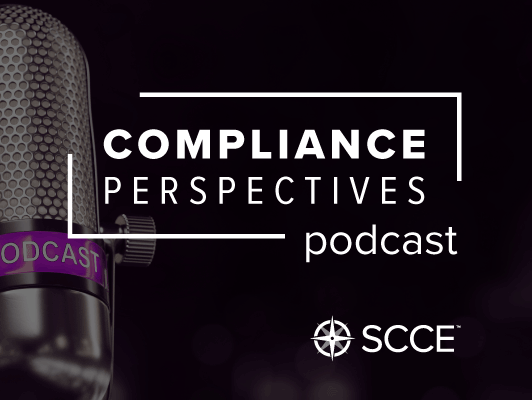Podcast: Play in new window | Download (Duration: 20:43 — 19.0MB)
Subscribe: Apple Podcasts | Email | TuneIn | RSS
The Challenger and Columbia disasters were as instructive as they were tragic, providing countless lessons for organizations, including for compliance and ethics professionals. The January 2022 issue of Ethikos focuses exclusively on them and features an extended article by Professor J. Mark Maier, Founding Chair of the Leadership Program at Chapman University
Professor Maier has dedicated much of his career to studying the disasters and sharing lessons from them, even producing a documentary. Of particular focus for him were the efforts of Roger Boisjoly and Allan McDonald, who refused to sign off on the Challenger’s launch. Professor Maier and McDonald frequently spoke about leading with integrity, including for US Space Command’s Leadership Development Program.
In the latest Compliance Perspectives podcast Professor Maier explores the many ethics issues that led to these disasters. The topics discussed include:
Speaking Truth to Power
It’s not easy for people to speak up to individuals who are more senior than they are. There’s inherent risk, especially when delivering bad news that can imperil a project. Adding to it, management often signals, intentionally or not, that they want things to stay on track, schedule and budget.
This calls for a focused effort by leadership to create a different mindset, one that encourages people to bring up unpopular truths.
Risk Complacency
In the case of the Columbia disaster, the spec was for no foam to fall off the external fuel tank, but it kept happening. In fact, it happened so frequently and with no effect. As a result, NASA grew complacent about the risk, until ultimately the foam did damage a wing and all aboard perished.
The Dynamic of Internal vs. External Risk
It can be too easy to downplay the external risks and focus on the internal risks we perceive to ourselves and our careers.
The Fallacy of “It’s a Business Decision”
Often a decision is treated as “just a business decision” when, in fact, there is an ethical issue at stake. Focusing solely on the results, dollars and cents fails to consider the importance of the means, and not just the end.
The Importance of Little Things
It is easier to fix a problem when it is small than when it is big. However, when it is small it is too easy to ignore until it is too late.
The Value of Servant Leadership
This often-misunderstood term is explained, and Professor Maier argues that when management leads as a servant of common cause rather than from a position just of power, it is far more advantageous.
Listen in to learn more lessons from these two tragedies.


